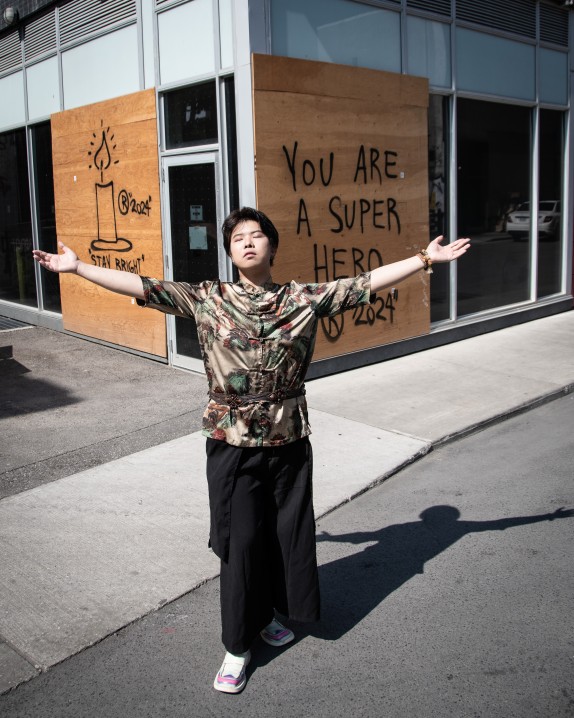Yijia Shaw / China, Justin Anantawan
“I’ve always thought the immigration experience is like trying to install IKEA furniture without a proper handbook. As I write down this story, I’m still in the anxious waiting period of applying for Canadian Permanent Residency—a not-yet immigrant and a ‘Canadian want-to-be.’ I have two stories I’ve lived through: one is that I came to Canada for a better life, with more acceptance and freedom to be myself. The flip side is receiving the passive, invasive contempt for my culture, my language, myself. It shows in the ‘you are not welcome’ look I get in public when I speak Mandarin with my friend. It can even invade my personal life, like when a friend internalizes Sinophobia.
I feel alienated in the communities I’m part of: being a transmasc/transman in the Chinese community and an Asian in Canada. Maybe the lack of belonging I experienced growing up turned me into an overthinker with a savior complex: ‘I wanted to become a psychotherapist so I can make people happy,’ I thought. ‘Maybe then I can finally be seen and valued as a part of society’—that was my secret unconscious agenda. It took me years of bittersweet experiences and meaningful connections to let go of my need to be useful. Now, I just want to be myself, as I am.
I am a trans person who grew up in mainland China. Unlike the hypervisibility trans people experienced in North America, or being scapegoated in political debates, I felt invisible and did not belong growing up.
I spent my teenage years in a boarding school, everything was gendered there. I remember teachers discipline students into conforming gender stereotypes: ‘girls should be like girls’ and ‘boys should be boys’. I did not know that trans man or transmasculine people existed at the time, nor did I have the awareness of misogyny or cishet normativity. I just knew I felt uncomfortable and did not belong. I remember I was inspired by Mulan, how they could just exist without conforming to the gender norm, and contribute in a way they wanted.
With the knowledge I have now, I know queer people have always existed in China and ancient Chinese culture. Either in deities, art, or documented history. Even in the political discourse, queerness is perceived as a ‘westernized thing’. I feel the call to integrate all parts of me, and stand with my Chineseness and queerness.“




